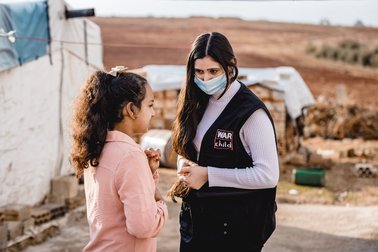Knowledge Hub
-
10/27/2023
Strategies to improve the quality and usefulness of mental health trials in humanitarian settings
A striking rise in the number of people affected by humanitarian crises has led to an increase in mental health and psychosocial support interventions to reduce the psychological effects of such crises. In a parallel trend, researchers have brought increased methodological rigour to their evaluation of these interventions. However, several methodological issues still constrain the quality and real-world relevance of the existing evidence base. This literature review examines five core challenges in randomised controlled trials of mental health and psychosocial support interventions with conflict-affected and disaster-affected populations.
Read more
-
12/04/2023
Systematic review of strategies for improving attendance in health and mental health interventions for children and adolescents in LMICs: Implications for mental health interventions
This review synthesises the evidence base for promoting and maintaining attendance in mental health and health interventions for children and adolescents in low- and middle-income countries (LMIC) and identifies strategies that can be employed for mental health interventions in those contexts. This is achieved through systematically searching relevant peer-reviewed literature in PubMed, Embase, PsychINFO and Global Health. The findings identify several promising strategies from the global health literature, which can be translated to mental health interventions for children and adolescents in LMICs. Still, they also highlight the need for further research to establish their appropriateness in addressing the barriers to attendance in mental health interventions.
Read more
-
03/27/2024
Social contact as a strategy to reduce stigma in low- and middle-income countries: A systematic review and expert perspectives
Social contact (SC) has been identified as a promising strategy for stigma reduction. Different types of SC exist. Various scholars defined positive factors to strengthen SC. This systematic review aims to investigate the application and effectiveness of SC as a strategy to reduce stigmatisation across stigmas, settings and populations in low- and middle-income countries (LMICs). More specifically, it examines the use of positive factors. It finds that conclusions about which type of SC is more effective or whether SC is more effective for a specific stigma category cannot be drawn; rather, it recommends future research to strengthen reporting on effectiveness as well as people with lived experience (PWLE) perspective and SC processes, and to further critically examine the potential of SC. An overview of positive factors applied to strengthen SC is provided, which can stimulate reflection and guide future SC.
Read more
-
06/28/2024
Barriers, facilitators and proposed solutions to equitable mental health financing and service delivery for the Lebanese populations and displaced Syrians in Lebanon: Findings from a qualitative study
Forcibly displaced populations experience an increased burden of mental illness. Scaling up mental health (MH) services places new resource demands on health systems in crises-affected settings and raises questions about how to provide equitable MH services for refugee and host populations. This study investigates barriers, facilitators, and proposed solutions to MH financing and access for Lebanese populations and Syrian refugees in Lebanon, a protracted crisis setting.
Read more
-
03/14/2024
Power dynamics and participation within humanitarian coordination groups: A case study of the MHPSS Taskforce in Lebanon
The humanitarian sector has often been criticised for its hierarchical power dynamics. Such dynamics often centre the priorities of ‘international’ actors, thereby marginalising the knowledge and expertise of those closest to the setting and play out in various fora, including coordination mechanisms. While guidance emphasises the importance of supporting local systems and government structures rather than creating parallel humanitarian structures, this approach is not consistently applied, creating challenges. This paper uses a case study approach to explore how power relations influence the practice of the Mental Health and Psychosocial Support Taskforce in Lebanon, a nationally-led coordination mechanism chaired by the Ministry of Public Health with UN agencies as co-chairs.
Read more
-
04/02/2024
Evaluating a Movement-Based Mental Health Promotion Intervention for Refugee Children in Uganda: A Quasi Experimental Study
Mental health promotion interventions are widely implemented in humanitarian settings and low- and middle-income contexts (LMICs), yet evidence on effectiveness is scarce and mixed. This study evaluated the movement-based mental health promotion intervention “TeamUp” in Bidibidi refugee settlement, in Northern Uganda. A quasi-experimental study including four schools (two per arm) assessed the outcomes of 10- to 15-year-old South Sudanese and Ugandan children. Randomly allocated, they either participated in up to 11 TeamUp sessions provided by trained facilitators; or belonged to a control group, which continued care as usual. Primary outcomes measured psychosocial wellbeing, friendships and attitude to school; secondary outcomes included traumatic distress, depressive symptoms, quality of life, physical health, bullying, interoceptive awareness, and irritability. Children saw significant improvements in both primary and secondary outcomes. This shows promising results for the intervention, though more research is needed to assess its effectiveness.
Read more
-
04/25/2025
Follow-up and Mediation Outcomes of a Movement-Based Mental Health Promotion Intervention for Refugee Children in Uganda
There is limited evidence for the effectiveness of mental health promotion interventions in low- and middle-income settings, especially for longer-term benefits. This study evaluates the 5-month follow-up outcomes of a movement-based mental health promotion intervention (TeamUp) for refugee children in Northern Uganda (West Nile) and further investigates what explains longer-term benefits.
Read more